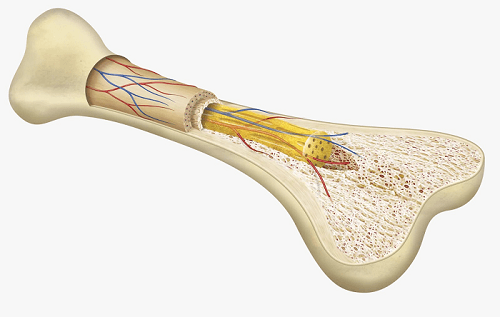Bone DefinitionBones are hard, dense, and rigid structures that make up the skeleton of vertebrate living beings, including humans and animals. The functions of bones go beyond their structural role. They have a role in hormone control, mineral storage, and the formation of blood cells. Additionally, bones are affected by various factors such as diet, exercise, and lifestyle habits, which can impact their health and overall well-being. In this article, we'll explore the many fascinating aspects of bones and why they're so important. Bones provide support, shape, and protection to the body and its internal organs. They are composed of living tissues, including collagen, calcium phosphate, and bone cells, and they have the ability to grow, adapt, and repair themselves. They also play critical roles in the production of blood cells, mineral storage, and hormone regulation. Overall, bones are an essential part of the body's structure and function, allowing for movement, protection, and the maintenance of health and well-being. 
What are bones in the human body?Bones are an essential part of the human body, providing structure, support, and protection for our vital organs. Comprised of living tissues, bones are constantly remodeling, allowing for growth and repair. However, bones are much more than just a simple framework for our bodies; they play a vital role in the production of blood cells, storage of minerals, and regulation of hormones. Structure and FunctionBones are made up of several different types of tissue, including collagen, calcium phosphate, and living cells such as osteoblasts and osteoclasts. Together, these tissues create a strong and flexible framework that supports the body's weight and allows for movement. Bones are also critical for protecting delicate organs such as the brain, heart, and lungs. Bone Marrow and Blood Cell ProductionOne of the most critical functions of bones is the production of blood cells. Red, white, and platelet production occurs in the bone marrow, which is located in the middle of bones. These blood cells are essential for carrying oxygen throughout the body, fighting infections, and clotting blood to prevent bleeding. Without bone marrow, our bodies would not be able to make the vital blood cells needed to survive. Mineral StorageBones also serve as a reservoir for several essential minerals, including calcium and phosphorus. These minerals are essential for keeping bones, teeth, & muscles in good condition. Furthermore, this storage in the bones can be used by the body when it needs additional calcium or phosphorus to keep blood levels in check. However, if the body is deficient in these minerals, it can lead to weakened bones and a higher risk of fractures. Hormone RegulationBones also play a role in regulating several hormones in the body, including estrogen and testosterone. These hormones are necessary for a variety of body processes, such as muscular growth, bone strength, and reproductive health. Hormone levels might drop as we age, which can cause bone loss as well as other health issues. Bone HealthMaintaining healthy bones is crucial for overall health and well-being. Diet, exercise, and heredity are just a few of the variables that might affect bone health. Calcium and vitamin D-rich meals, such as dairy products and leafy greens, can assist in building bones. Engaging in weight-bearing exercises, such as walking or running, can also help improve bone density and reduce the risk of fractures. In addition to diet and exercise, there are several other things individuals can do to improve bone health, including not smoking, limiting alcohol intake, and getting regular check-ups to detect any early signs of bone loss or other health problems. ConclusionIn conclusion, bones are a remarkable and vital component of the human body. They provide the structure and support necessary for movement, protection of internal organs, and overall health and well-being. Bones are not just static structures but are dynamic and constantly changing parts of the body, adapting to the body's needs and responding to various stimuli. Maintaining healthy bones is essential to promote long-term health and prevent the development of osteoporosis and other bone-related conditions. This can be achieved through a balanced diet rich in calcium and vitamin D, regular physical activity, and avoiding harmful behaviors such as smoking and excessive alcohol consumption. In summary, bones are remarkable structures that provide essential support and protection for living beings' bodies. Taking care of them is essential for long-term well-being and enjoyment of life since they are essential to preserving overall health and wellness.
Next TopicBusiness Communication Definition
|
 For Videos Join Our Youtube Channel: Join Now
For Videos Join Our Youtube Channel: Join Now
Feedback
- Send your Feedback to [email protected]
Help Others, Please Share










